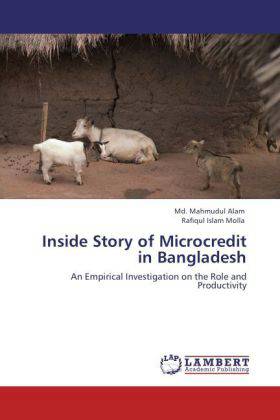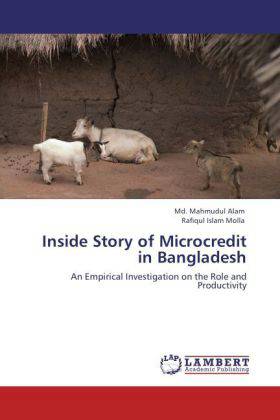
- Afhalen na 1 uur in een winkel met voorraad
- Gratis thuislevering in België vanaf € 30
- Ruim aanbod met 7 miljoen producten
- Afhalen na 1 uur in een winkel met voorraad
- Gratis thuislevering in België vanaf € 30
- Ruim aanbod met 7 miljoen producten
Zoeken
Inside Story of Microcredit in Bangladesh
An Empirical Investigation on the Role and Productivity
Mahmudul Alam, Rafiqul Islam Molla
Paperback | Engels
€ 48,45
+ 96 punten
Omschrijving
There is no denying the fact that microcredit has been playing an important role in the movement for poverty alleviation. But its serious limitations in terms of delivery system, rules of repayment, interest rate charges, etc are also undeniable. These limitations have made it unable to fully realize its goal and aspirations. A credible study like this was required to determine its economic and social productivity and actual interest paying capability. Applying the economic-profit counting method of analysis, it finds that for as many as 48% borrowers microcredit is not economically that productive to be able to pay so high interest. The study made three major contributions to literature: application of economic-profit counting method in economic productivity analysis, identification of the critically vulnerable group among the borrowers; and that borrowers regard microcredit more as a social than economic institution for facilitating and safeguarding their social and political empowerment. this is an important contribution and should enhance our understanding of the impact of microfinance on poverty. Prof. Anisuzzaman Chowdhury, Senior Economic Affairs Officer, United Nations
Specificaties
Betrokkenen
- Auteur(s):
- Uitgeverij:
Inhoud
- Aantal bladzijden:
- 92
- Taal:
- Engels
Eigenschappen
- Productcode (EAN):
- 9783846592519
- Uitvoering:
- Paperback

Alleen bij Standaard Boekhandel
+ 96 punten op je klantenkaart van Standaard Boekhandel
Beoordelingen
We publiceren alleen reviews die voldoen aan de voorwaarden voor reviews. Bekijk onze voorwaarden voor reviews.











